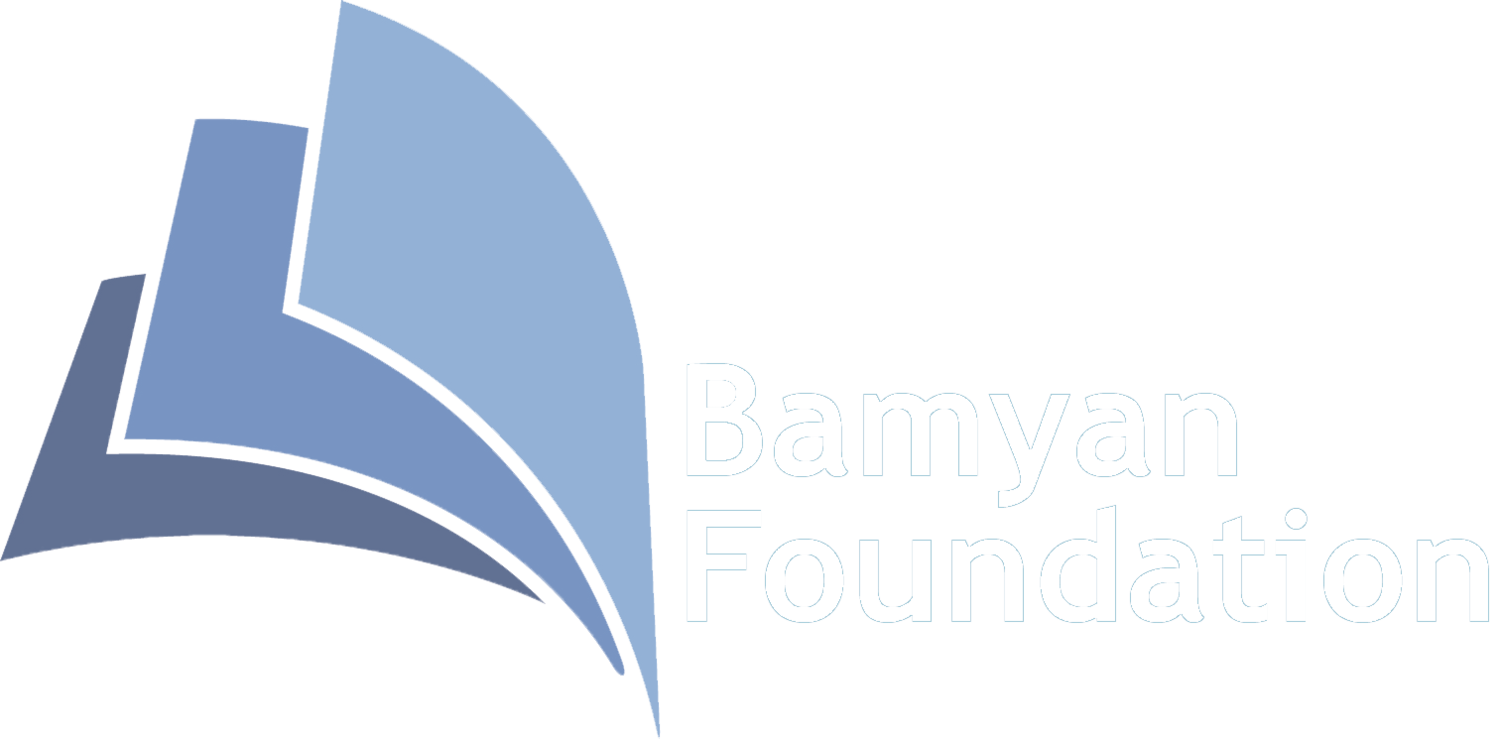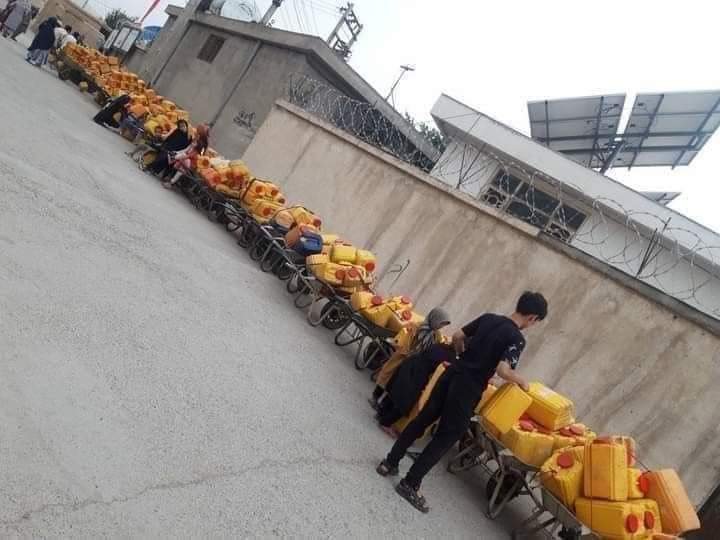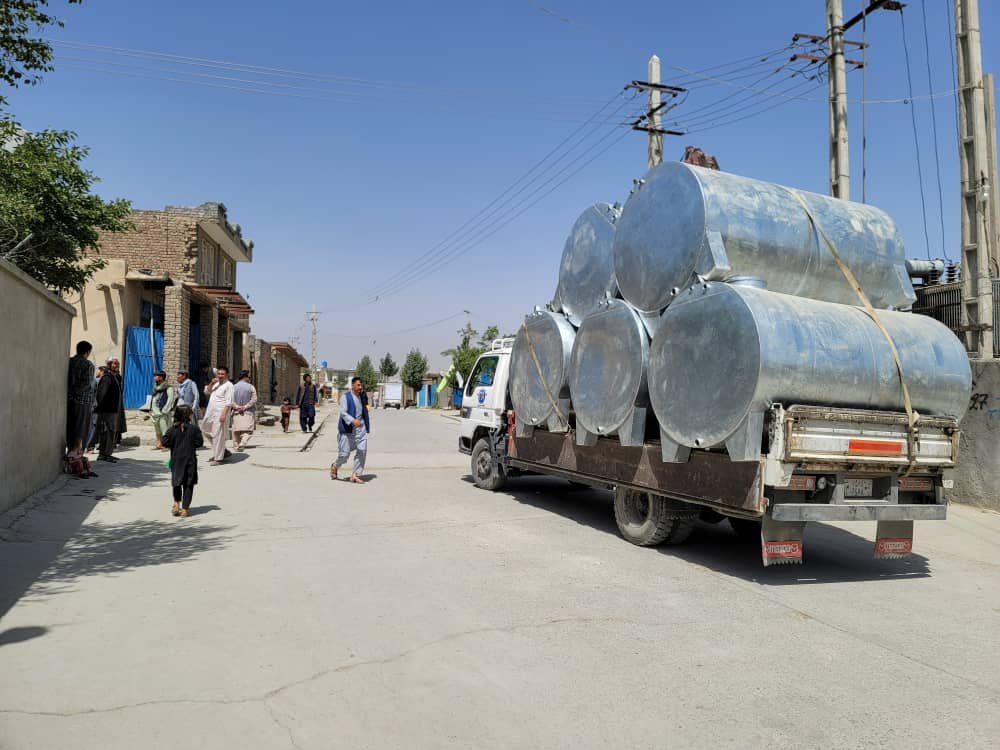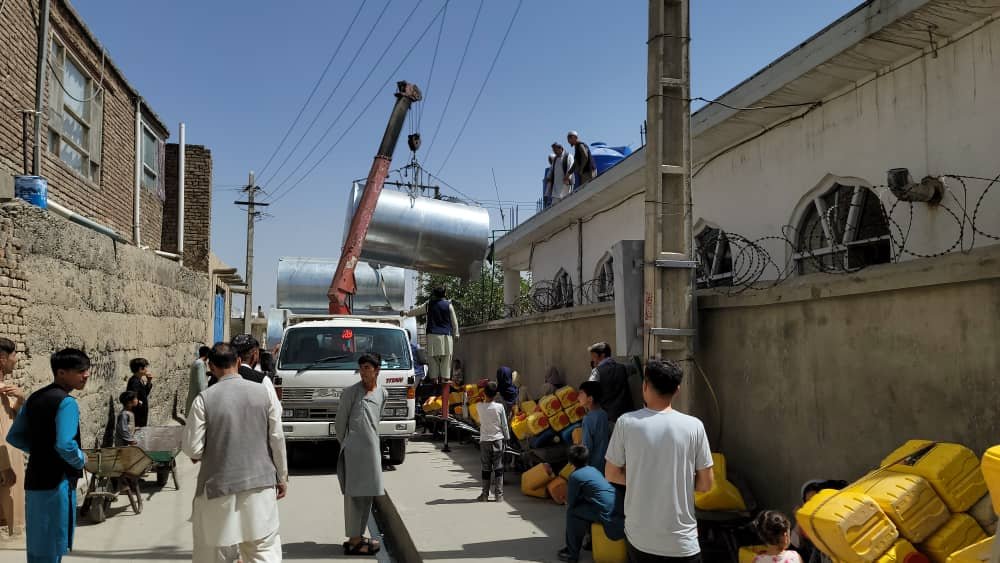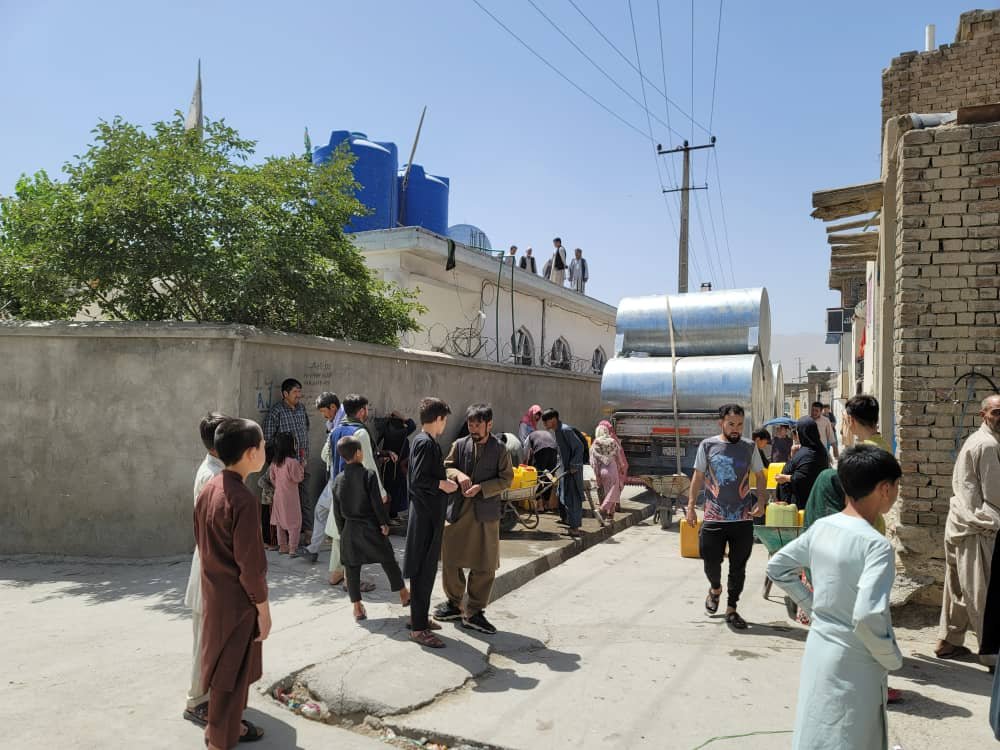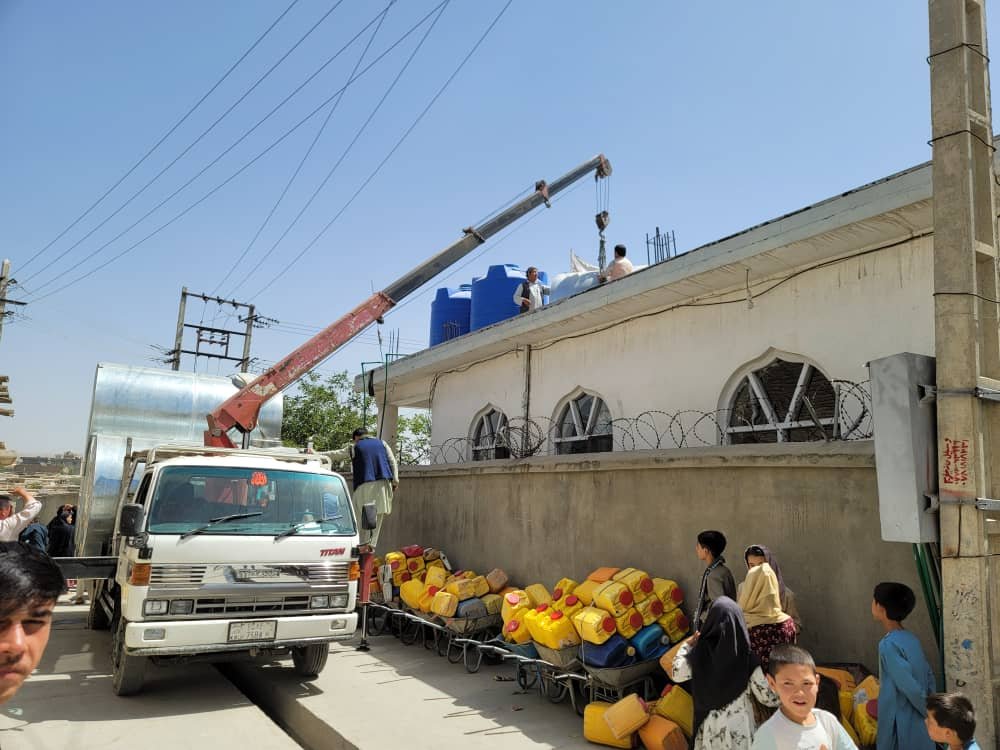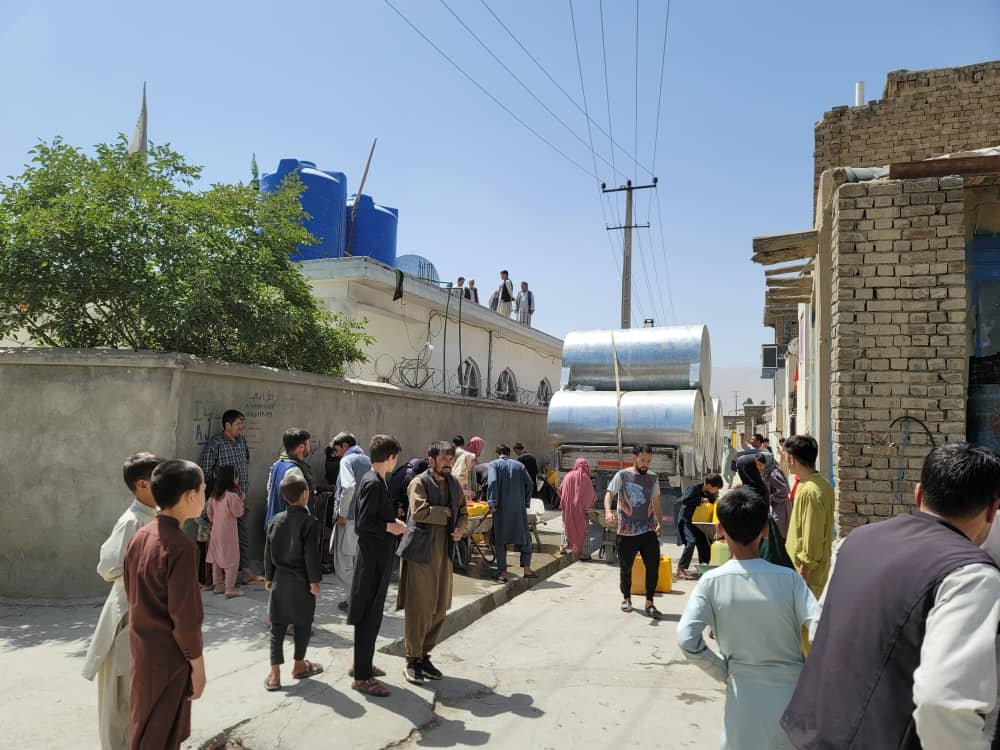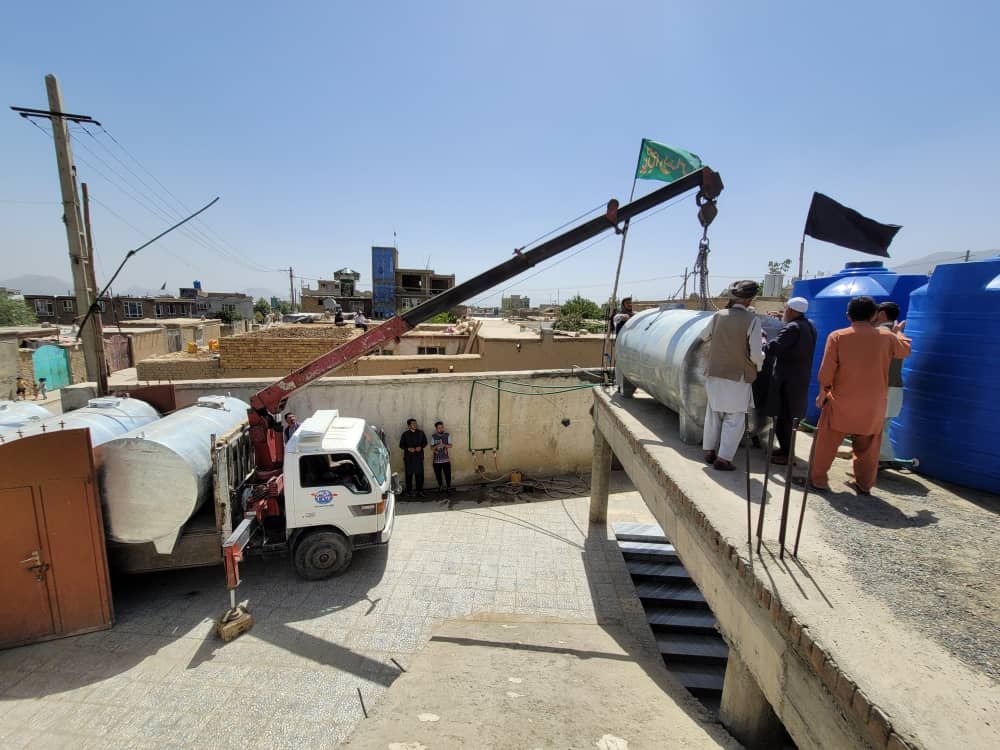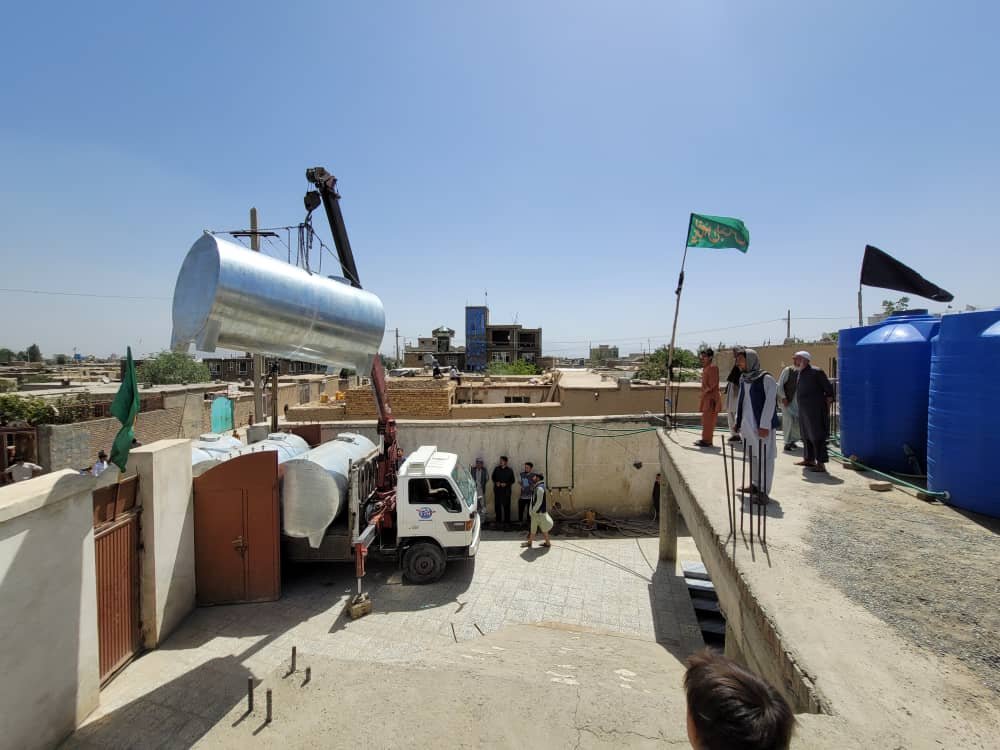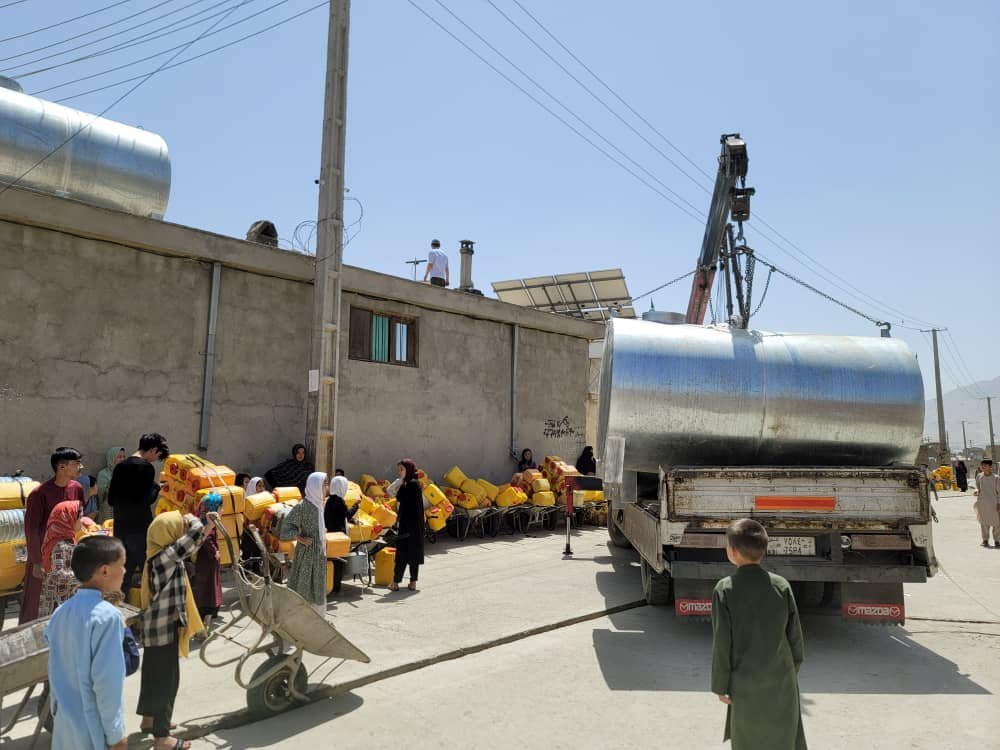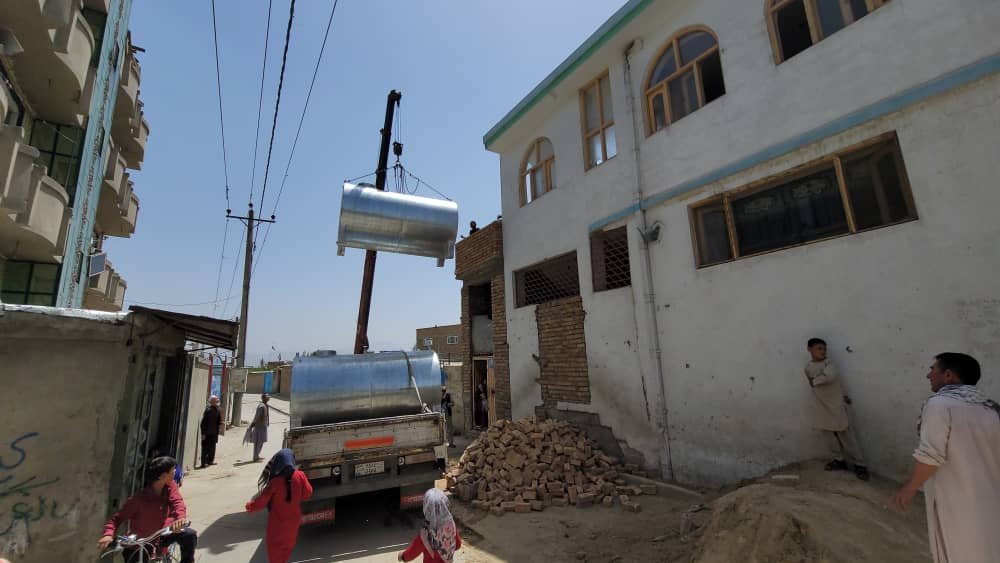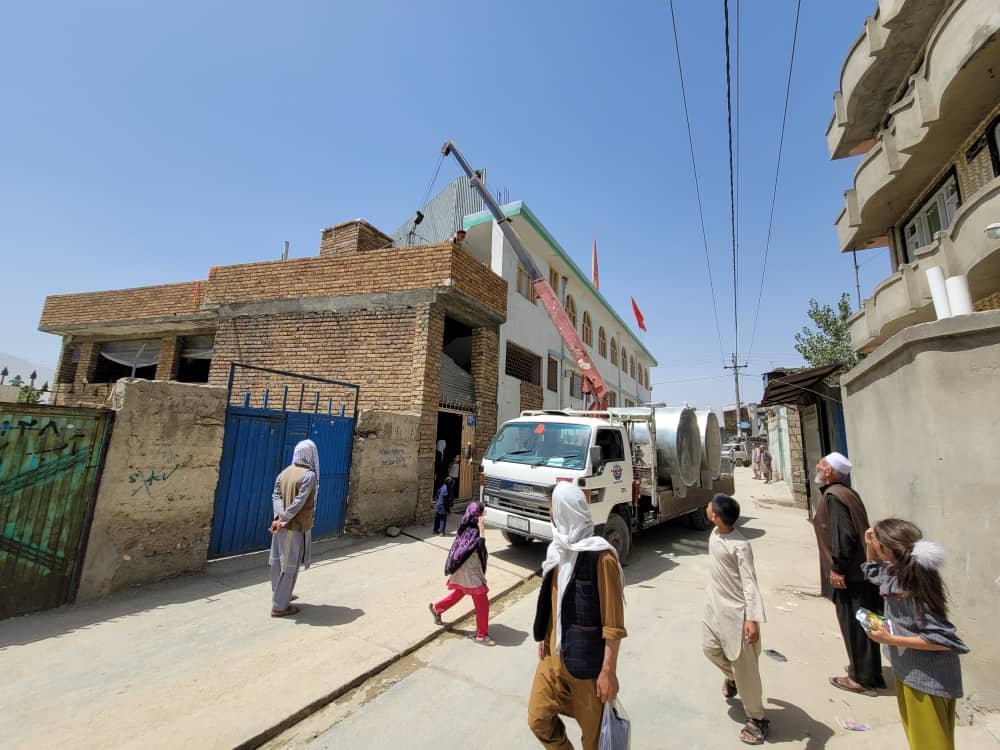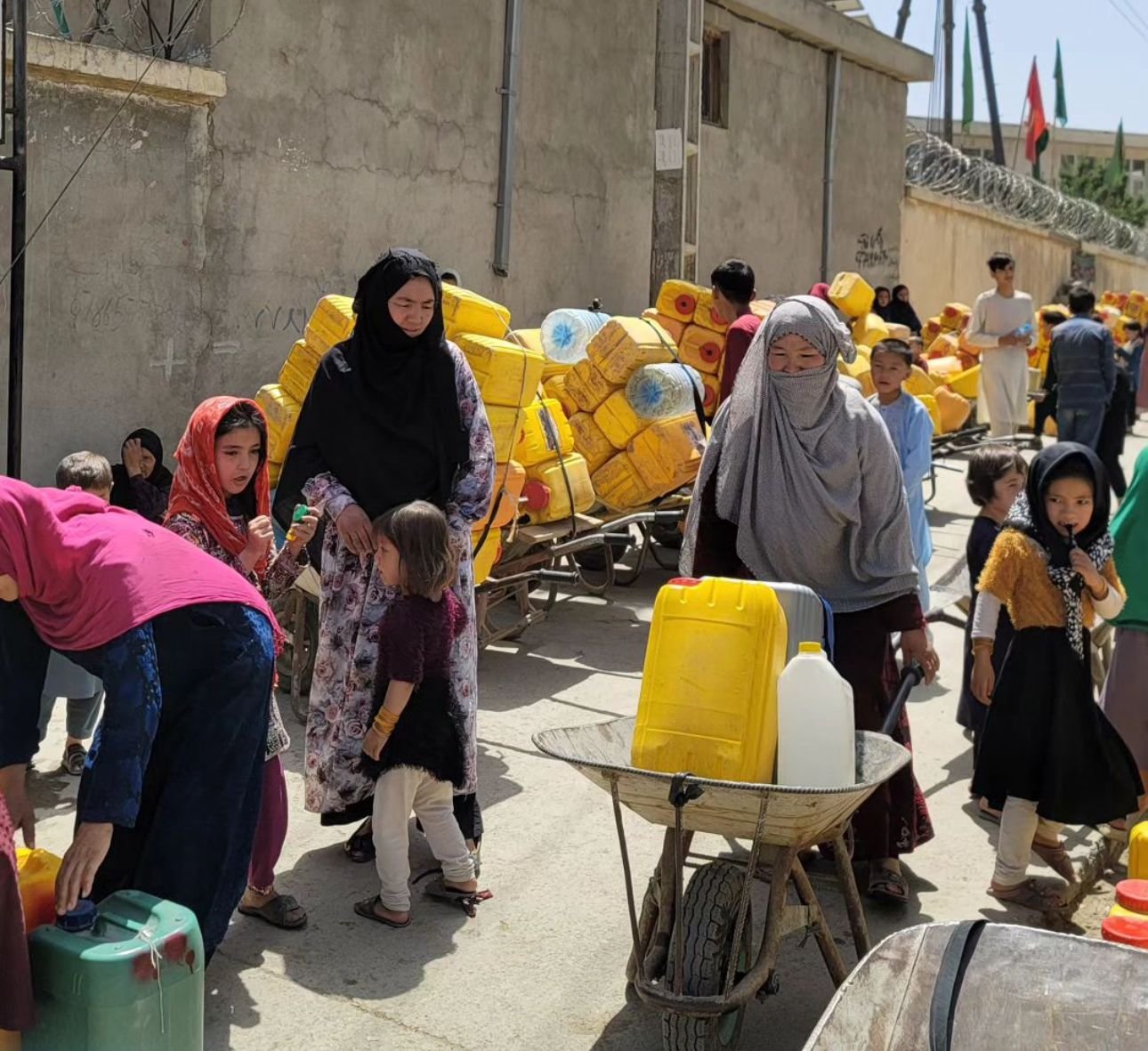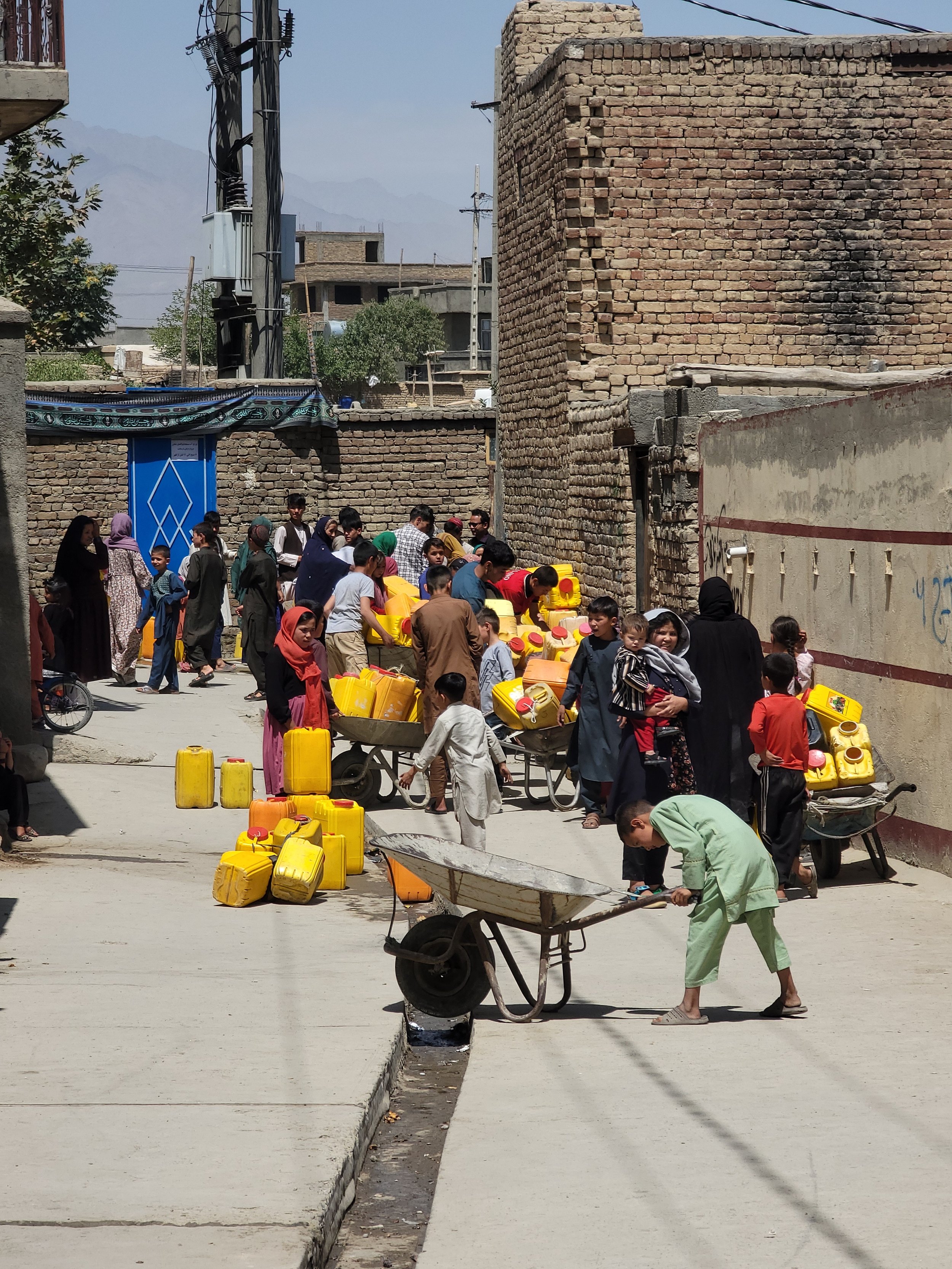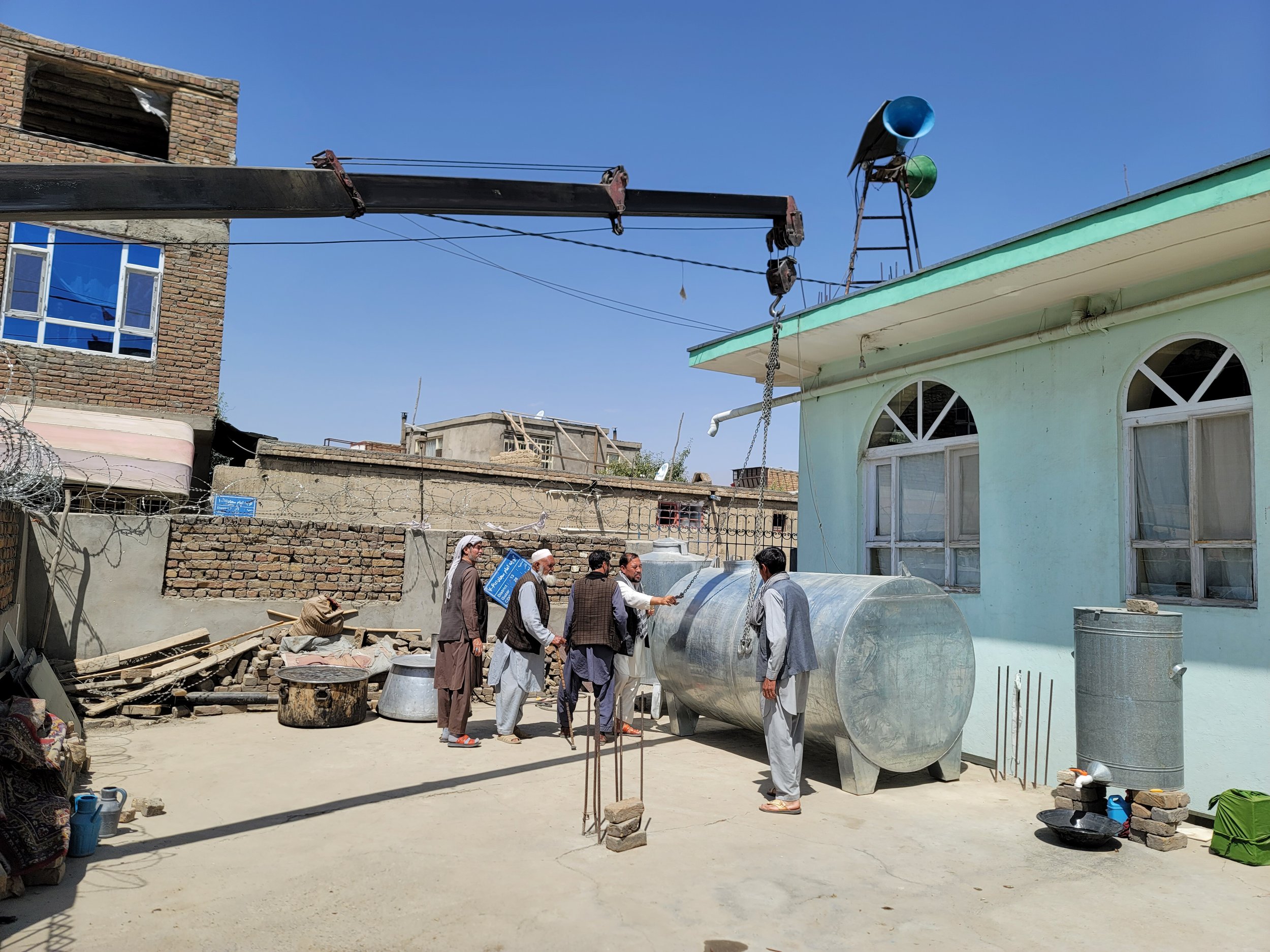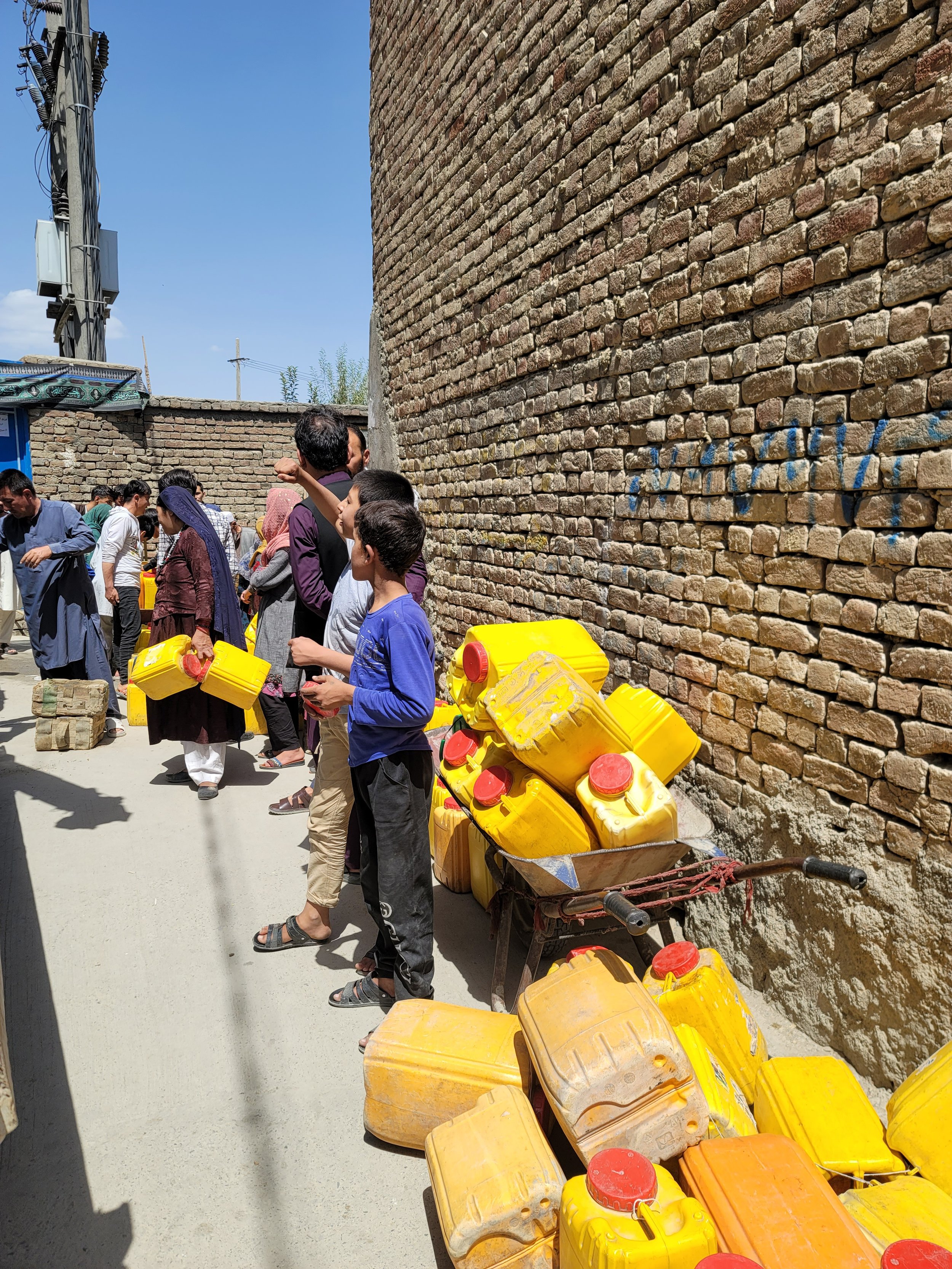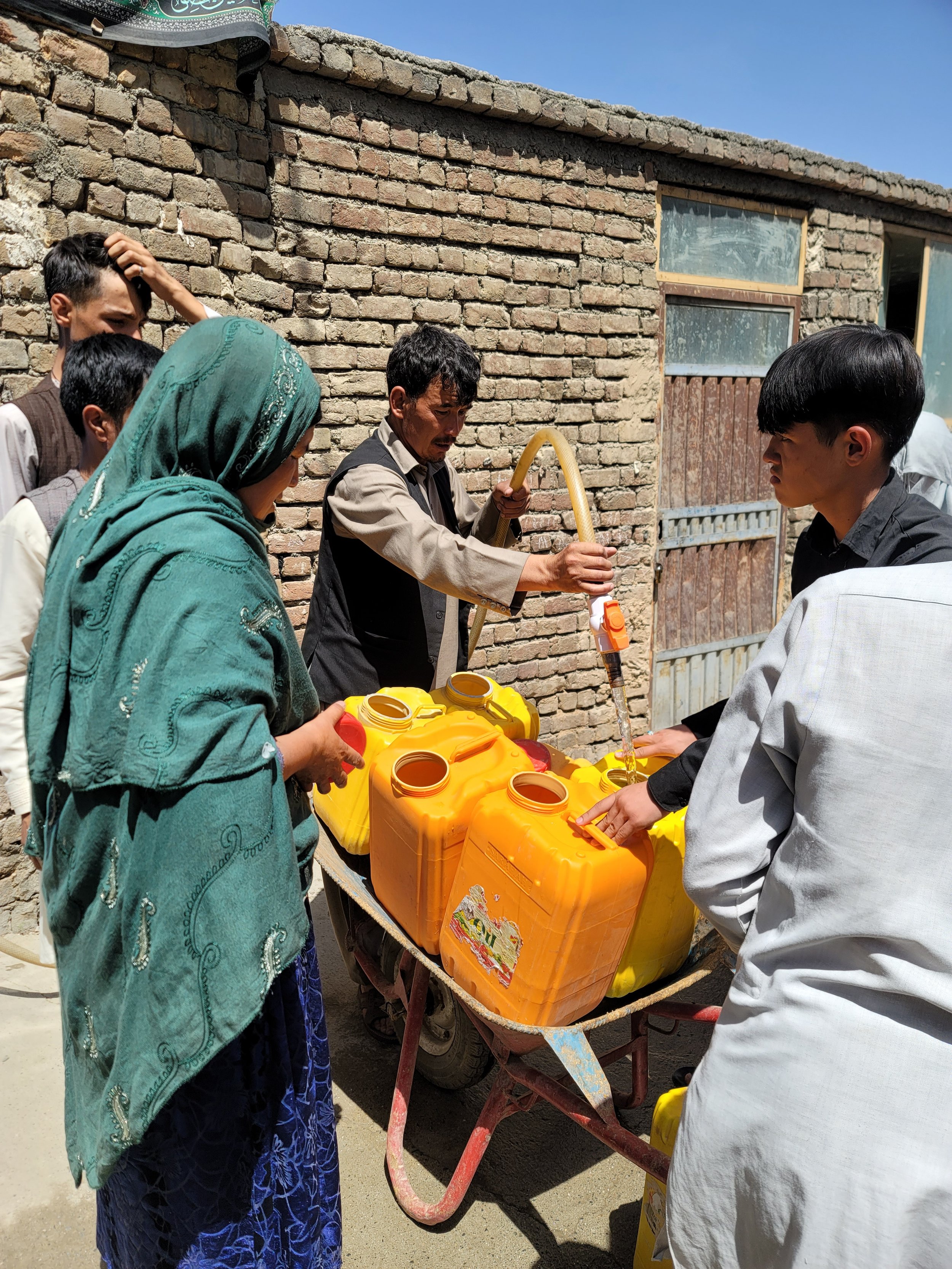Bamyan Foundation’s support to address the severe water shortage in Kabul
8/30/2023
About four years ago and during the republic, the Afghan Ministry of Disaster Management had issued a warning about the lack of rain, Kabul residents’ excess use of water and the dwindling underground water in Kabul. The Ministry had further warned about the dire consequences of severe water shortage if people do not adopt conservative water usage habits. Moderate use of resources such as water in a post-conflict zone like Afghanistan required long term commitment by the government and civil society – however, with the collapse of the Afghan government in August 2021, this dire issue appears to be of the least importance to Afghanistan’s current rulers.
Currently in Dasht-e-Barchi, an overpopulated Hazara western part of Kabul and in Regreshan area in particular, people are going through a severe water shortage, particularly drinking water. The wells that were excavated by the water supplying companies over the years have dried up, which adds to the suffering of residents of Regreshan.
Water tankers being installed at mosques
Since the Taliban’s takeover in the summer of 2021, the government has stopped supplying water from the government reservoirs to people in Dasht-e-Barchi area. The water shortage issue was only made public via social media as the local Afghan news outlets that are either controlled or influenced by the Taliban did not report on the issue.
The Bamyan Foundation team in collaboration with community leaders on the ground and local mosques conducted a survey and an analysis of the water shortage. We learned that solving the issue requires the monumental task of a sizable budget/funding and support from the local government that are almost impossible at the moment.
4,000 L water tanker being installed at a mosque
After the issue became public on social media, some of the aid agencies took notice and excavated deep wells in mosques that alleviated some of the hardships; however, accessing water from the wells depended on electricity that was mostly unavailable. The lack of electricity resulted to long waiting lines for the residents, sometimes for hours, outside the mosques just to get a few liters of water for their families.
Our team noticed that women, including mothers with babies, and mostly children were delegated with the task of long waits during the heat of the summer. Some of the children were seeking shelter from the sun under their empty water containers. This was an uncomfortable scene as the children, boys and girls, should have been at school instead, yet they had to be there not to lose their family’s spot in the long lines.
Our team with the approval of local community leaders decided to provide tankers full of water in selected mosques located in the neighborhoods that were experiencing the most severe water shortage. This would help reducing the long waiting lines and help women and children to access drinking water faster.
In total, our team provided 13 water tankers, each containing 4,000 liters of water, in 13 mosques in Regreshan area, and two 500 liter tankers in Chehel Dokhtaran neighborhood.
Water tankers being installed at mosques
As mentioned earlier, long term solution to the water shortage in Dasht-e-Barchi requires serious attention by the government and major aid organizations; however, in the absence of a responsive and responsible government, people have no choice but to find temporary solutions on their own.
The water tankers provided a temporary relief; however, the long and harsh winter is ahead for the most vulnerable families in these impoverished neighborhoods. Furthermore, it is of utmost importance to educate people about proper water conservation and the consequences of too many deep wells that will adversely affect the underground water reservoirs in the long run.
Our team further visited a family in need, a blind widow with three young daughters, Fatima, Fereshta and Shireen, and provided a modest assistance of $300 for the well-being of the three girls to help them prepare for the upcoming winter.
The following is a breakdown of the funds used to implement this initiative:
Total Amount allocated for this initiative: $5,905 USD
$2,985 USD raised via Musa Zafar and Timor Karimy’s campaign
$2000 allocated by Bamyan Foundation
$270 matching by Global Giving
Total Amount for the Water Shortage Initiative: $5,255 USD
Cost/expense for the initiative: $300 (covered by Bamyan Foundation)
Support for an at-risk family: $300 (covered by Bamyan Foundation)
WU/MG transfer fees: $50 (covered by Bamyan Foundation)·
Total Funds Received in Afghanistan: 469,800 AFN
This fund was wired in three transfers via WU and MG at exchange rates of 80 AFN, 81 AFN and 78 AFN respectively
13 water tankers (4,000 liters each) at cost of 31,500 AFN per tanker for a total of 409,500 AFN
Two water tankers (500 liter each) for a total 10,500 AFN
23,400 AFN for the at-risk family (equivalent to $300 USD at 78 AFN exch. rate)
24,300 AFN for our representative (equivalent to $300 at 81 exch. rate)
Remaining amount: 2,100 AFN
Again, this was a small community-led effort that brought temporary relief to a small segment of the population in Kabul, and we are so grateful to the famous Afghan singer, composer and producer, Farhard Darya and activist Musa Zafar for spreading the word. And many thanks to our generous supporters and thoughtful community leaders on the ground, and our team in Kabul to get the job done safely and efficiently.
